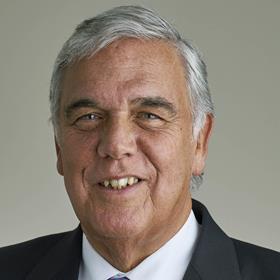After a tumultuous 2020, property’s leading figures share their hopes and expectations for 2021 as the year gets off to a rocky start with yet another lockdown.

Barry Jessup
Director, First Base
My biggest hope is that last year’s obsession with knee-jerk short-termism can be replaced by some genuine investment in future growth. We need to stop trying to prop up failing businesses and focus on supporting growth sectors and start-ups. The furlough scheme had some merit, but also resulted in many unviable businesses getting a stay of execution.
In contrast, start-ups and the self-employed have received precious little help and this will inevitably suppress their growth. We need to pump prime businesses in the growth sectors, and one of the few benefits of Brexit is that the UK will be able to unashamedly do this.
The same applies to the high street. The misguided policy of providing blanket rental relief to retailers has resulted in many failing businesses boosting their cash balances at the expense of property investors, many of them pensioners or local governments.
I hope these policies will be reversed in 2021, focusing on business rate windows or discounts for smaller high street users, and a centralised investment bank to support their bounce-back. Prospects for the high street can improve, but not by focusing on the past.

Sadie Morgan
Founding director and chair, Quality of Life Foundation
Covid has been a nightmare, but it has shown us all how important our homes and communities are to our wellbeing and highlighted the huge inequalities in our society.
I hope we can build on this understanding to make people’s wellbeing more central to our work, with more well-designed, affordable homes in locations that are sustainable, providing better access to both local services and green space and a greater sense of identity and belonging.
I expect this agenda will be put under pressure by the focus on “build, build, build” at any cost, but I see positive signs everywhere: from active neighbourhood WhatsApp groups to shifts in culture at government agencies and even volume housebuilders taking note. So I’ll focus on those for now.

Marc Vlessing
Chief executive, Pocket Living
Last year was an incredibly challenging one for all of us. We are delighted that we managed to keep going and welcome first-time buyers to new affordable homes in Haringey and Ealing. Some 40% of our purchasers are key workers so we know first hand the difference it has made to them to be able to get their own home during the pandemic.
This year we will complete developments in Barking, Croydon and Redbridge and start new ones in Barnet and Waltham Forest, and hopefully Greenwich and Harrow. Planning remains a critical challenge for small developers and small sites.
We need a more proportionate planning system that does not expect the same from a small site for 50 homes as one for 500 or 5,000. The cost, complexity and time taken in planning is a major reason why small developers deliver just 10% of new homes.
Research we commissioned from Lichfields found that small sites in London are taking 60 weeks on average to get planning permission; five times the statutory deadline. Greater positivity, pragmatism and proportionality in planning will result in the social, environmental and economic benefits that the country needs.
Robert Whitton
Founder/CEO, Impact Capital Group
A housing market slowdown is inevitable, but my outlook is not as bleak as the macro economic conditions might make it seem. In line with the government’s Green Recovery Plan, we see an opportunity to unleash real innovation by continuing to restructure our sector. As a consequence of the pandemic, the need to survive will push us to implement changes we’ve been putting off for years.
This will include many worthwhile enhancements for the sector, such as the increase of MMC-specific frameworks in housing delivery. While the sector’s innovations to date have been focused on improved processes, systems, safety, and delivery, what comes next could be the ultimate disrupter.
The government is relying on us – individual businesses – to be the innovators in supporting their green plans. It is our responsibility as a sector to play our part, and I suspect the momentum behind sustainable housing is going to build over next year as we target net zero by 2050.

David Workman
Senior partner, Workman
Despite the many obvious challenges for the sector in 2020, investors and developers remained laser-focused on the needs of their customers. ESG commitments, from net zero targets and the healthy buildings movement to creating social value in local communities became more, not less, important.
They have been pushed to the top of the agenda by occupiers and investors throughout the pandemic. This has been reflected in our own evolution as we’ve developed our services even more rapidly to focus on what our clients require to futureproof their businesses.
The drive for greater occupier experience and customer service in real estate, the application of tech to deliver this and the need to repurpose existing assets are all prominent themes that have shaped the services we deliver. With more change to come, we in the property industry share a responsibility to ensure that change is for the better.
Continue to part 23 here
Forecast for 2021: looking ahead with hope
- 1
- 2
- 3
- 4
- 5
- 6
- 7
- 8
- 9
- 10
- 11
- 12
- 13
- 14
- 15
- 16
- 17
- 18
- 19
- 20
- 21
- 22
 Currently reading
Currently readingForecast for 2021: looking ahead with hope (part 22)
- 23
- 24
- 25
- 26
- 27
- 28
- 29
- 30
- 31
- 32
- 33
- 34
- 35
- 36
- 37
- 38
- 39
- 40
- 41
- 42






































































No comments yet